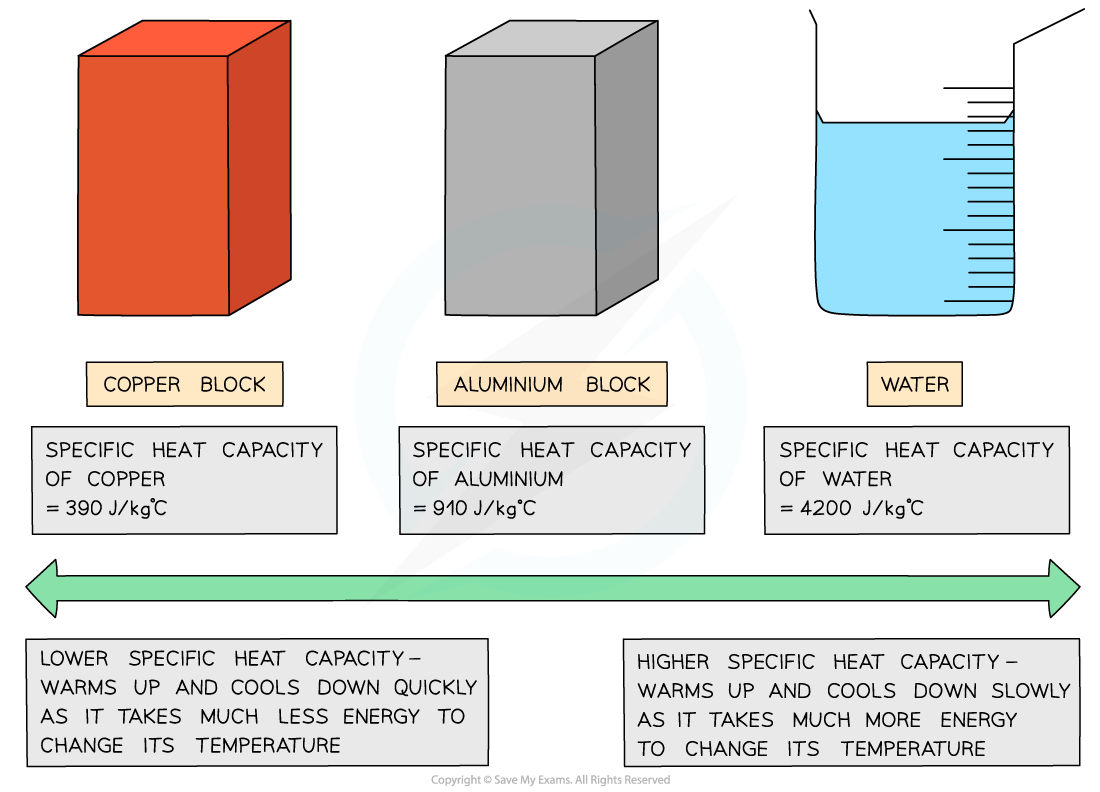Thermal Energy (AQA GCSE Physics): Revision Note
Exam code: 8463
Did this video help you?
Thermal Energy
Energy in the thermal store of an object is responsible for its temperature
Energy can be transferred to or from an object or system
The amount of energy needed to raise the temperature of a given mass of a substance by a given amount can be calculated using the equation:
ΔE = mcΔθ
Where:
ΔE = change in energy, in joules (J)
m = mass, in kilograms (kg)
c = specific heat capacity, in joules per kilogram per degree Celsius (J/kg °C)
Δθ = change in temperature, in degrees Celsius (°C)
The specific heat capacity of a substance is defined as:
The amount of energy required to raise the temperature of 1 kg of a substance by 1 °C
Different substances have different specific heat capacities
If a substance has a low specific heat capacity, it heats up and cools down quickly
It takes less energy to change its temperature
If a substance has a high specific heat capacity, it heats up and cools down slowly
It takes more energy to change its temperature

Low v high specific heat capacity
Specific heat capacity is mainly used for liquids and solids
The specific heat capacity of different substances determines how useful they would be for a specific purpose, e.g., choosing the best material for kitchen appliances
Good electrical conductors, such as copper and lead, are excellent thermal conductors due to their low specific heat capacity
On the other hand, water has a very high specific heat capacity, making it ideal for heating homes, as the water remains hot in a radiator for a long time
Examiner Tips and Tricks
This equation will be given on your equation sheet, so don't worry if you cannot remember it, but it is important that you understand how to use it. You will always be given the specific heat capacity of a substance, so you do not need to memorise any values.

Unlock more, it's free!
Did this page help you?